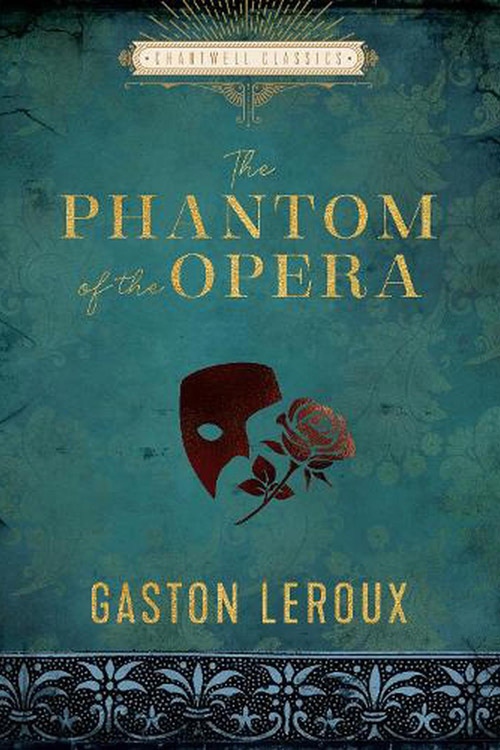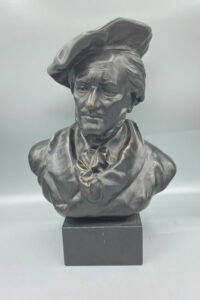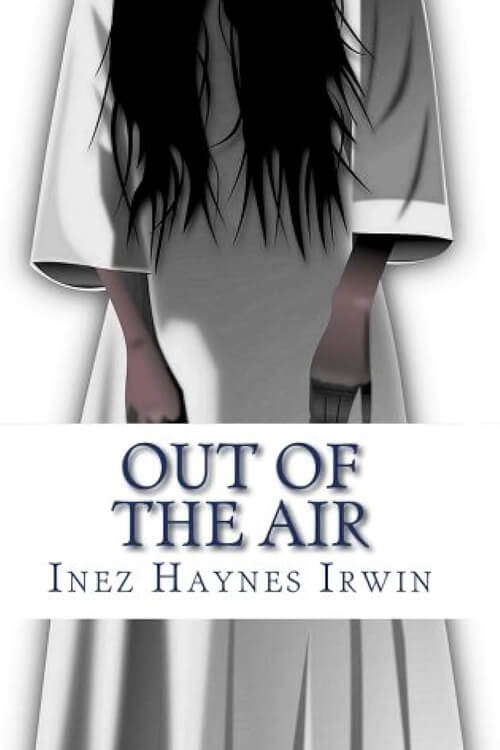
The Phantom of the Opera
In the 1880s, in Paris, the Palais Garnier Opera House is believed to be haunted by an entity known as the ‘Phantom of the Opera’, or simply the ‘Opera Ghost’, after stagehand Joseph Buquet is found hanged, the noose around his neck missing. At a gala performance for the retirement of the opera house’s managers, a young, little-known Swedish soprano, Christine Daaé, is called upon to sing instead of the opera’s leading soprano, Carlotta, who is ill. Christine’s performance was a success. The Vicomte Raoul de Chagny is among the audience members who recognize her as his childhood playmate and recall his love for her. He attempts to visit her backstage, where he hears a man complimenting her from inside her dressing room.
He investigates the room once Christine leaves, only to find it empty. At Perros-Guirec, Christine meets with Raoul, who confronts her about the voice he heard in her room. Christine says she has been tutored by the “Angel of Music”, whom her father used to tell her and Raoul about. When Raoul suggests that she might be the victim of a prank, she storms off. Christine visits her father’s grave one night, where a mysterious figure appears and plays the violin for her. Raoul attempts to confront the figure but is struck and knocked out. Back at the Palais Garnier, the new managers receive a letter from the Phantom demanding that they allow Christine to perform the lead role of Marguerite in Faust and that box five be left empty for his use, lest they perform in a house with a curse on it. The managers assume his demands are a prank and ignore them. Soon later, Carlotta ends up croaking like a toad, and a chandelier drops into the audience, killing a spectator.
Having abducted Christine from her dressing room, the Phantom reveals himself as a deformed man called Erik. Erik intends to hold her prisoner in his lair for a few days. Still, she causes him to change his plans when she unmasks him and, to the horror of both, beholds his skull-like face. Fearing that she will leave him, he decides to hold her permanently. However, when Christine requests release after two weeks, he agrees that she should wear his ring and be faithful to him. On the roof of the Opera House, Christine tells Raoul about her abduction and makes Raoul promise to take her away to where Erik can never find her, even if she resists. Raoul says he will act on his promise the next day. Erik watches them and overhears their whole conversation unbeknownst to Christine and Raoul. The following night, the enraged and jealous Erik abducts Christine during a production of Faust and tries to force her to marry him. Raoul is led by a mysterious Opera House regular, ‘the Persian’, into Erik’s secret lair in the bowels of the building.
Still, they end up trapped in a mirrored room by Erik, who threatens that unless Christine agrees to marry him, he will kill them and everyone in the Opera House by using explosives. Under duress, Christine decides to marry Erik. Erik initially tries to drown Raoul and the Persian, using the water that would have been used to douse the explosives. Still, Christine begs, promising him not to kill herself after becoming his bride. Erik releases Raoul and ‘the Persian’ from his torture chamber. When Erik is alone with Christine, he lifts his mask to kiss her on her forehead and eventually kisses her back. Erik reveals he has never kissed anyone, including his mother, who would run away if he tried to kiss her. Moved, he and Christine cry together. She also holds his hand and says, “Poor, unhappy Erik”, which reduces him to “a dog ready to die for her”.
Read or download Book
Gaston Leroux
Leroux was born in Paris in 1868, the illegitimate child of Marie Bidaut and Dominique Leroux, who married a month after his birth.
Biography
He claimed an illustrious pedigree, including descent from William II of England (in French, Guillaume le Roux), son of William the Conqueror, and social connections such as having been the official playmate of Prince Philippe, Count of Paris at the College d’Eu in Normandy. After schooling in Normandy and studying as a lawyer in Caen (graduating in 1889), He inherited millions of francs and lived wildly until he nearly reached bankruptcy. In 1890, he began working as a court reporter and theatre critic for L’Écho de Paris. His most important journalism came when he worked as an international correspondent for the Paris newspaper Le Matin in 1893.
He was present at and covered the 1905 Russian Revolution. Another case where he was present involved the investigation and in-depth coverage of the former Paris Opera (presently housing the Paris Ballet). The basement contained a cell that held prisoners of the Paris Commune. He left journalism in 1907, after returning from covering a volcanic eruption and being immediately sent on another assignment without vacation time, and began writing fiction. In 1919, he and Arthur Bernède formed their own film company, Société des Cinéromans, publishing novels and turning them into films. He first wrote a mystery novel titled Le mystère de la chambre jaune (1907; English title: The Mystery of the Yellow Room), starring the amateur detective Joseph Rouletabille.
Leroux’s contribution to French detective fiction parallels those of Sir Arthur Conan Doyle in the United Kingdom and Edgar Allan Poe in the United States. Leroux published his most famous work, The Phantom of the Opera, as a serial in 1909 and 1910 and as a book in 1910 (with an English translation appearing in 1911). Balaoo followed in 1911 and was made into a film several times (in 1913, 1927, and 1942). Leroux was made a Chevalier de la Legion d’honneur in 1909. He died at age 58 in Nice, France, in 1927.






